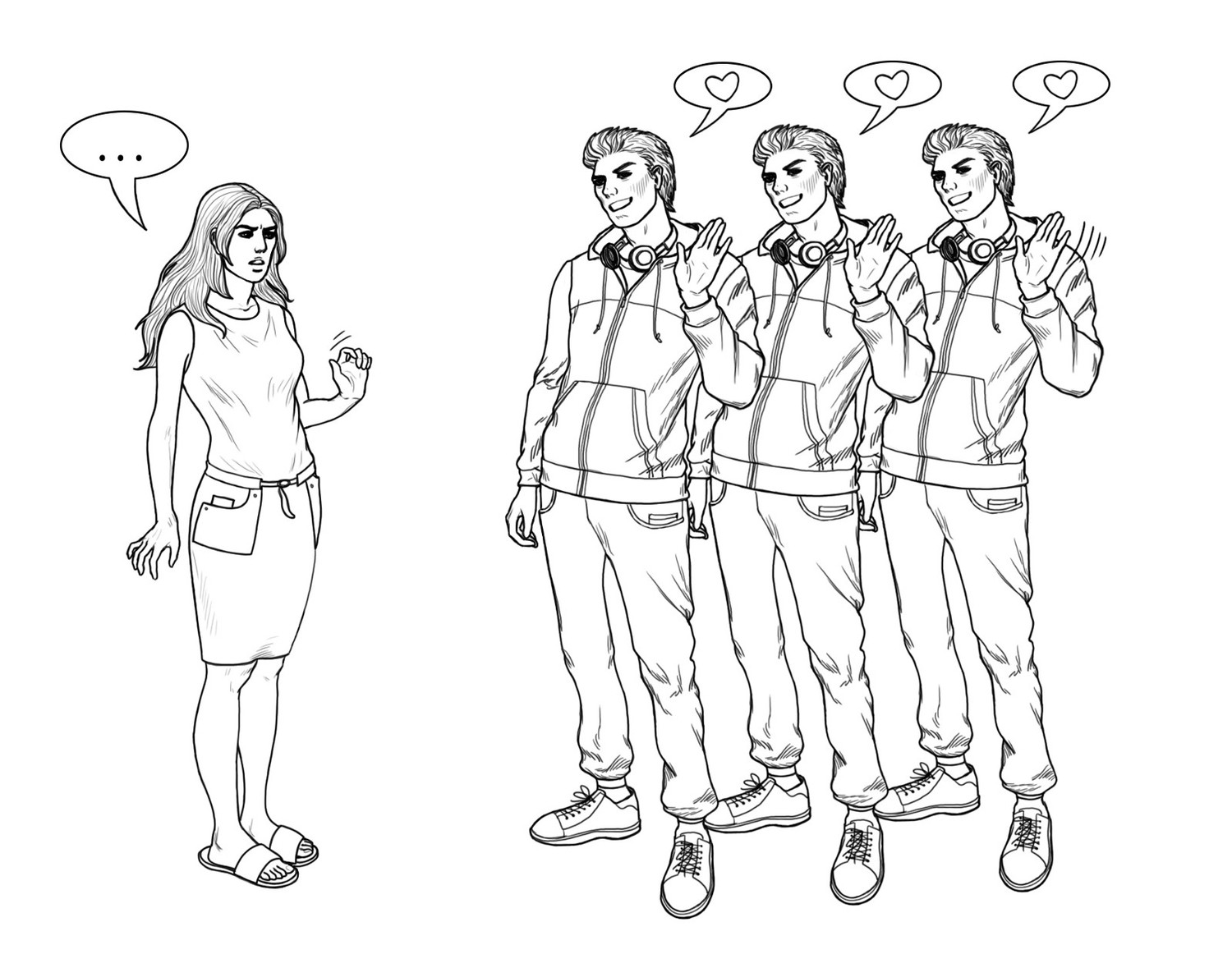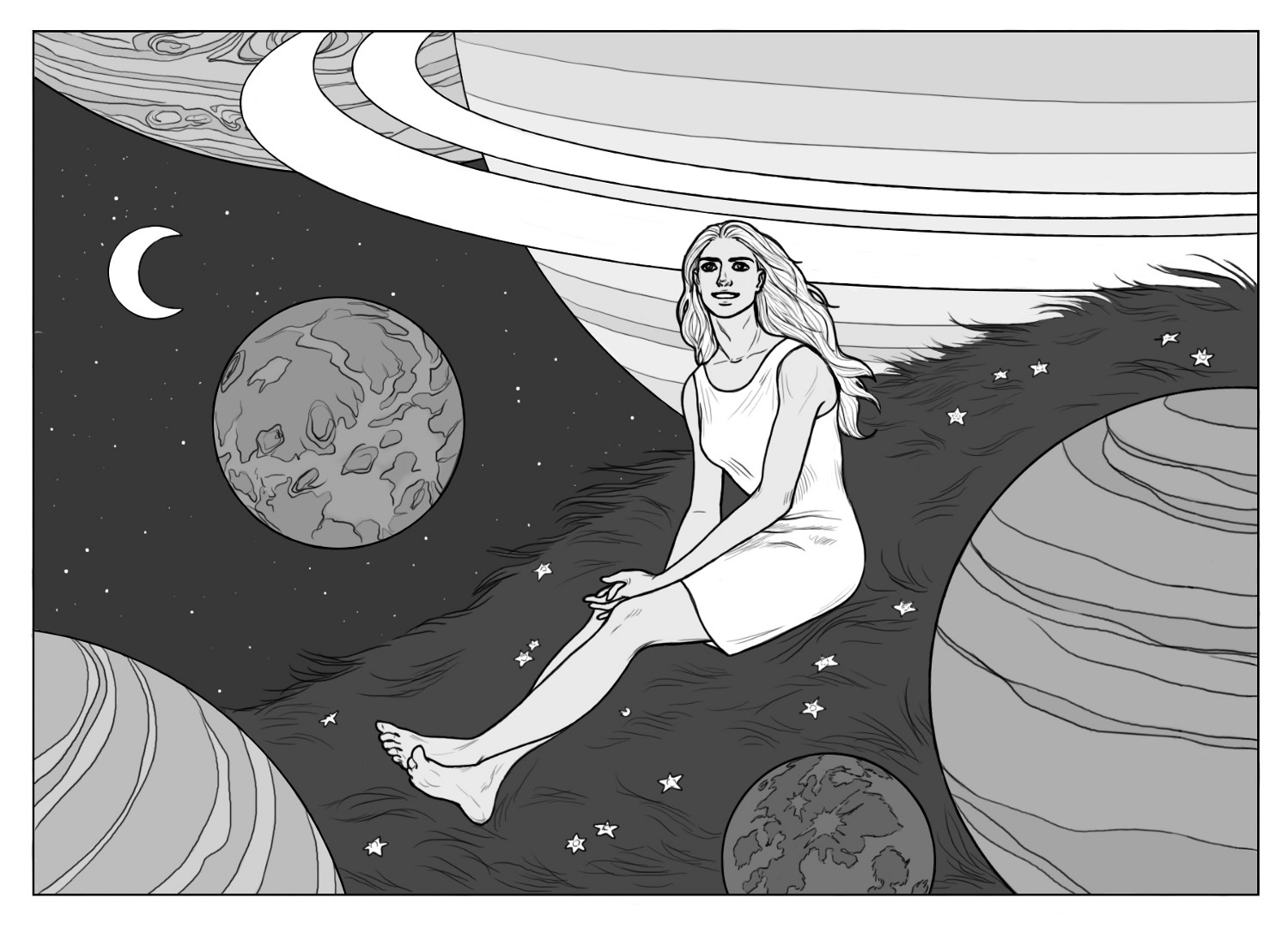This essay is an ode to love, learning, and pronoia. Pronoia is the belief that the universe is conspiring in our favor at all times, the opposite of paranoia. When viewed through the lens of pronoia, our lives become a constant stream of opportunities to discover ourselves, those we love, and our greatest potential. Once we accept this, our capacity to love is only limited by our ability to learn.
I became single for the first time in my adult life two years ago this week. I felt anxious to date at the time and confused about how to approach love again. I desperately wanted to get “it” right, find lasting partnership and avoid in the future what I perceived at the time to be failure, the end of my relationship.
This is a personal reflection in the form of ten lessons learned from my dating journey of the past two years. It is also a wish for everyone, especially anyone who is single and living with a fear of the unknown, to embrace as I now do the power of pronoia, especially in love. I felt challenged to remain steadfast and non-conformist on that path, so I offer these thoughts in hopes that others may find it easier to walk forward.
1. Measure love with a dashboard, not a leaderboard.
A dashboard always tells you that you’re failing your personal potential in a relationship while a leaderboard might say you’re outpacing your peers in what should never be a competition. A dashboard is measured internally as contentment while a leaderboard is measured externally as success.
Dashboard dating metrics I’ve learned to manage include checking my phone an excessive number of times for new texts, delaying a response to feign extreme business and confirming a man is alive based on his last time using WhatsApp. While no one sees these behaviors, I always felt them negatively whether it was my own anxiety or a dating prospect’s true flakiness in some cases. By contrast, my internal satisfaction in a relationship rises when a partner takes care to learn my love language, which I now know to be a blend of words of affirmation and quality time.

Leaderboard metrics include things like Facebook love status updates and New York Times wedding announcements, in which I gleefully participated in the past. I now agree wholeheartedly with Paul Weinfield when he admonishes that “you have to be vigilant that a relationship doesn’t become more important than the love it’s meant to support”. I know a few wonderful couples who occasionally share their relationships online, as my friend does beautifully here for example. However, these select couples do so with full sincerity and unwavering commitment that I’ve observed in the spotlight and outside it.
2. Channel anxiety into self inquiry and avoidance into self-awareness.
Attachment theory in psychology dictates that individuals carry secure, anxious, or avoidant energies in relationships depending on their personality types and rooted in their upbringings. I believe both anxious and avoidant energies are better channeled towards growth than either recklessly released (anxious) or bottled up (avoidant). My attachment style was formerly anxious, but became secure through diligent study of both myself and others.

Specifically, I read on subjects directly relevant to relationships and other broadly relevant ones like comfort with uncertainty. I also engaged others through working with a fantastic personal coach and learning from my peers at a monthly town hall meeting on sex and love.
My meditation practice continues to pay dividends in life and relationships. Specifically, I practice scanning my body for anxious feelings and returning to present awareness through concentrated breathing. From a place of stillness, I become conscious of uncomfortable feelings that I might initially seek to repress.
3. Feedback can be personal development Miracle Grow, but it sometimes hides inside the cow’s manure of criticism, otherwise known as sh*t.
I see feedback as distinct from criticism in the following ways: Feedback is an actionable recommendation of behavior modifications and is useful towards positive change and future improvement. Criticism, in comparison, is grounded in the past and therefore not particularly actionable or useful. It also often triggers shame for the recipient.
In my opinion, transforming criticism into feedback is both emotional alchemy and a set of skills to be mastered with practice.
In my opinion, transforming criticism into feedback is both emotional alchemy and a set of skills to be mastered with practice. This half-magic, half-management technique materialized for me only when I stopped seeking to re-educate or convince my naysayers. I adopted ruthless accountability for allowing the people and their associated words and actions into my life.
Today, I am more careful to choose mindful men with tact and grace versus cheap critics. However, I learned more and faster on my dating journey than I would have otherwise by analyzing what critical men said but ignoring how they said it, all in the name of self-improvement.
4. Pattern Recognition and Mean Reversion
Einstein is credited with saying that it is the definition of insanity to do the same thing and expect a different result. In this same vein, I believe pattern recognition is another dating super power.

A single dating data point may be an anomaly, but a cluster can be a trend. Trends are powerful explainers of the past, as well as an indicator of the future if there is a causal relationship between behaviors and outcomes.
For me personally, I realized the feedback loop I wasn’t getting directly from the men I dated was sometimes as useful as many things I heard directly. I studied the quiet or often silent messages I received over time to identify a destructive, avoidant communication pattern in my relationships. Once I recognized this fact, I could begin to study its origin and evolve past it through self-inquiry.
5. Radical Sensitivity
I have found declining an offer for a date or indicating my underwhelming interest in a man to be difficult and uncomfortable. I have also found doing the opposite — being vulnerable and saying when I care — to be much more difficult.
To say what you mean and mean what you say begins from the first text. I’ve learned not to label what is often an impulse to avoid my own discomfort with compassion for another person’s feelings. I learned to practice radical sensitivity: offering kind no’s that pave the path to heartfelt yes’s at other times.
I learned to practice radical sensitivity: offering kind no’s that pave the path to heartfelt yes’s at other times.
I strive to be sensitive beyond transparent, which requires time and care. I now take that time and care to craft truthful yet direct messages whether delivered in writing or in person. In general, I believe a coffee date trumps a phone call, which trumps a text. I also believe “ghosting” is for Halloween and driverless cars only.
6. Build a Lifestyle Relationship vs. a Startup Relationship
I believe that many of the principles that govern my professional domain strongly hinder my success when applied in romantic relationships. My peers and I in the startup ecosystem appear to suffer when our relationships don’t emulate the fabled unicorn companies we’re also seeking to build.
As an entrepreneur, you’re not deemed successful unless your company is constantly accelerating its growth. You’re not deemed ultra-successful unless that growth occurs rapidly, perhaps leading to a quick and profitable IPO or sale. If you’re not interested in selling, then discovering an organic, sustainable source of fast growth over the long term is an exceptionally challenging, often all-consuming pursuit.
Ironically enough, a lifestyle relationship offers immense scalability in the personal development and satisfaction of the owners, i.e. my partner and me.
I’ve realized that a successful relationship for me looks more like a lifestyle business than a start up. It pays dividends for the long term and disregards scalability, by which I mean acquiescence to any generic relationship definition or one’s own ego. Ironically enough, a lifestyle relationship offers immense scalability in the personal development and satisfaction of the owners, i.e. my partner and me.
7. “This is it working out”
“What if it doesn’t work out?” is a common refrain, especially at the onset of relationships when the future is murkiest to discern. I find the related practice of imagining what I would do “even if it doesn’t work out” to be equally pernicious.

Today, I recognize that this comes from a place of fear. While I previously attempted to stomp on that fear in hopes of eliminating it, I’ve now learned to explore it. Is it fear of the unknown? Of loneliness? Am I afraid of regret?
If I am being pushed to investigate a fear, then I am growing towards a truly more courageous place. When I’m learning, I can confidently say “This is it working out” regardless of the tenure of the relationship. Every relationship I have been in has “worked out” as long as I genuinely grew from it and the same should hold in the future.
8. Everyone is a Mirror.
Simply put, I believe everyone I’ve dated was a mirror reflecting my distinct self at the precise moment we encountered one another. Thus, his shortcomings reflected my own and his insecurities matched mine in magnitude, if not in their precise appearance. I could not have received more at the time because I didn’t have more to give. My next point is an extension of this insight.
9. Show Compassion, to Yourself and Others
The word compassion literally means suffering, which comes from the Latin for “passion”, and together, which is denoted by the prefix “com”. In past relationships, I knew my own suffering at times, but recognizing the mutuality of any pain I encountered has been a revelation in my life.
I’ve learned that the insecurity or hurt I sometimes felt as a result of a partner’s actions was often rooted in that individual’s suffering, not his malice, even if he was unaware at the time. I’ve forgiven the shortcomings of others by forgiving myself for the lack of compassion I displayed on the very journey to realizing this truth.
10. Pronoia is Real
Here is an acronym that I love for the word ‘fail’: From All I Learn.
I’ve learned to follow my curiosity forward versus doubt my ability to change, which can be labelled a “growth mindset” in relationships. I don’t celebrate failure, which is the mistake of a blind optimist, but I acknowledge when it appears. From a place of recognition, I optimize to improve my process or approach (versus outcomes) because I recognize that’s all I can directly control.
I do the work and the universe works for me.
When I am still searching for a lesson, or I repeat a mistake, indicating that I’ve forgotten what I once understood, I reflect on what I’ve learned, in some cases literally by re-watching this, or re-listening to this, or re-reading this. I’ve trained myself to doubt less often and for shorter periods of time.
I do the work and the universe works for me. Pronoia is the logical outcome of constant learning.
If you read this post and take from it to follow certain steps with the goal of arriving at or escaping from a particular relationship status, you’d have missed my most pressing point. To illustrate the real message, let’s imagine dating as an ocean.
Fulfillment comes from adopting an explorer’s mindset and coupling it with a pronoid belief that love and adventure are your supreme destiny, whether sailing in partnered or single waters.
Over the last two years, I have felt a wide range of sea currents and tested the strength, size and character of my own ship. I’ve learned that love or satisfaction is not found in a destination on the other side of that ocean. Fulfillment comes from adopting an explorer’s mindset and coupling it with a pronoid belief that love and adventure are your supreme destiny, whether sailing in partnered or single waters.
Today, I am neither happily partnered nor proudly pausing any pursuit of a relationship. Instead, I’m learning and dating from a more conscious perspective than ever before. I am humble, curious and fully convinced of the truth that our ability to learn is the only factor limiting our potential to love.
Thank you to Shaunda Brown (+ Vincent Mikolay), Erica Berger, Khemaridh Hy, Vicki Rox and Adam Devine for reading drafts of this essay and encouraging me to publish it. In addition, I am grateful for the many friends who supported me on my journey with love and patience at every turn, both right and wrong.
Finally, thank you to all the souls who matched to mine romantically for moments both brief and extended in the last two years. You were my teachers and I’m eternally grateful for all the lessons.
Interested in bringing executive coaching to your company and high potential employees? Email me at [email protected] to learn more about my new company, Dream Space.
Originally published at medium.com


